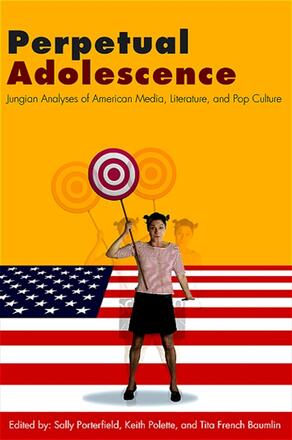
Perpetual Adolescence
Jungian Analyses of American Media, Literature, and Pop Culture
Alternative formats available from:
Explores the arrested development of American culture.
Description
Arguing that American culture appeals to and is populated by children and adolescents who merely appear to be adult men and women, the essays in Perpetual Adolescence examine the Jungian archetype of the "eternal youth"—the puer aeternus—as it is manifested in the arrested development of American culture. From the infantilization of the American psyche and the lionization of teenaged celebrities and bodies, to fanatical conformity, and puerile entertainment, the contributors probe the various ways that American television, music, film, print, Internet, education, and social movements work to nourish and sustain this child archetype. Offering analytic psychology as an instrument of social analysis and critique, they point to the need for dialogue over the causes and effects of our puer-fixations, which have become, in large part, both a creation and a creator of the American zeitgeist.
Sally Porterfield is former Director of the A&S Drama Program at the University of Hartford, where she was Assistant Professor of Drama. She is the author of Jung's Advice to the Players: A Jungian Reading of Shakespeare's Problem Plays. Keith Polette is Professor of English at the University of Texas at El Paso. His books include Teaching Grammar Through Writing: Activities to Develop Writer's Craft in ALL Students in Grades 4–12. Tita French Baumlin is Professor of English at Missouri State University and coeditor (with James S. Baumlin and George H. Jensen) of Post-Jungian Criticism: Theory and Practice, also published by SUNY Press.
Reviews
"The fourteen essays in Perpetual Adolescence each stand on their own as important contributions to understanding the archetype of the Eternal Child in Western popular culture … Perpetual Adolescence is a timely, provocative, and sobering examination of the endemic suffering and pandemic consequences of mass-mindedness 'driven by archetypes.'" — Spring
"This compelling analysis of why visions of never-ending childhood are so compelling in contemporary media delivers a solid, Jungian deconstruction of pop culture." — CHOICE
"Perpetual Adolescence is a fascinating study of one of Jung's most important archetypes, that of the puer aeternus, which implies arrested development rather than eternal youth. Perpetually interesting, this book is genuinely interdisciplinary and will appeal to those interested in cultural studies, film studies, environmental studies, and mythic criticism." — Jeffrey Berman, author of Death in the Classroom: Writing about Love and Loss